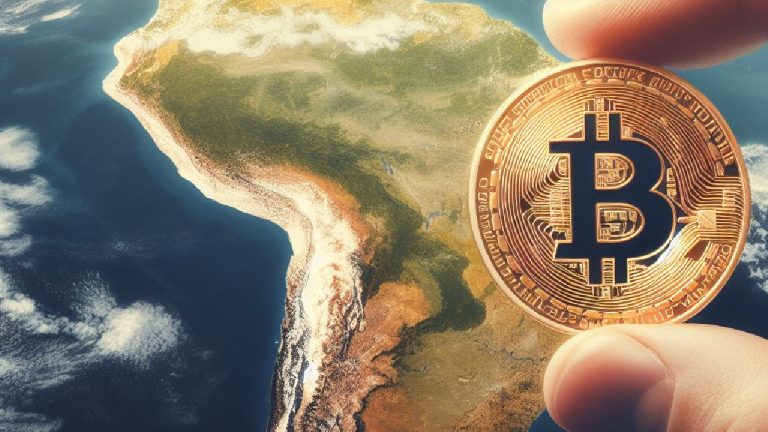Latam Insights: El Salvador’s Bitcoin Portfolio Goes Black, Brazil Brings Digital Currency Talk to G20
Publikováno: 11.12.2023
 Welcome to Latam Insights, a compendium of Latin America’s most relevant crypto and economic news during the last week. In this issue: The portfolio of bitcoin investments of the Salvadoran government went into black numbers, Brazil will discuss using digital currencies for financial transfers in the Group of 20 (G20), and Venezuela alleged Exxonmobil financed […]
Welcome to Latam Insights, a compendium of Latin America’s most relevant crypto and economic news during the last week. In this issue: The portfolio of bitcoin investments of the Salvadoran government went into black numbers, Brazil will discuss using digital currencies for financial transfers in the Group of 20 (G20), and Venezuela alleged Exxonmobil financed […]

Welcome to Latam Insights, a compendium of Latin America’s most relevant crypto and economic news during the last week. In this issue: The portfolio of bitcoin investments of the Salvadoran government went into black numbers, Brazil will discuss using digital currencies for financial transfers in the Group of 20 (G20), and Venezuela alleged Exxonmobil financed Essequibo’s ballot opposition with cryptocurrency.
El Salvador’s Bitcoin Investments Go Black
The bitcoin investment strategy of El Salvador has started to pay its dividends, as the country’s holdings went into black numbers with the recent rise in the price of bitcoin. President Nayib Bukele shared a post on social media explaining that the country had finally reached this point after being ridiculed and targeted by hit pieces due to their calculated losses while making these investments.
However, Bukele stated that the country had no intention of selling the bitcoin it owns, estimated to be around 2,381 BTC by different trackers. Bukele also called news sites to “issue retractions, offer apologies, or, at the very least, acknowledge that El Salvador is now yielding a profit.”
Brazil to Discuss Digital Currency Themes at G20
Brazil intends to bring a digital currency agenda as the new president of the Group of 20 (G20). Roberto Campos Neto, president of the Central Bank of Brazil, detailed that the country will discuss the use of digital currencies and the benefits it can bring to the economies of the bloc.
Campos Neto stated:
Digital currencies can greatly reduce the costs of international transactions. The G20 will work to improve the settlement and governance of international transfers.
Campos Neto explained these cost reductions would come as a consequence of the monetization of the private data of users, touting programmability as one of the advantages of this new tech. “It is a technology that is here to stay. It democratizes,” he concluded.
Venezuela Alleges Exxonmobil Financed Essequibo’s Ballot Opposition Using Crypto
The government of Venezuela reported that Exxonmobil, one of the biggest oil and gas companies, tried to influence the result of the recent Essequibo ballot in the country, which intended to determine the opinion of the citizens about the Guyana-administered zone, using crypto. Venezuelan Attorney General Tarek William Saab issued 14 arrest warrants related to this investigation, including opposition members outside the country like former interim President Juan Guaido.
The national prosecution alleges the funds used to influence the election were introduced to the country by two U.S. nationals, Damian Merlo and Savoi Jandon Wright, who used cash and USDT, a dollar-pegged stablecoin, to funnel the funds into the country while avoiding financial controls.
Exxonmobil, having a significant presence in the Esequibo region, denied any attempt to finance Guyana’s activities in this conflict. Darren Woods, CEO of Exxonmobil, stated:
We are limiting our role to the area of our expertise, which is basically helping them (Guyana) to responsibly develop their resources.
To follow all the latest developments in crypto and the economy in Latin America, sign up for our Latam newsletter below.
What do you think about this week’s Latam Insights report? Tell us in the comment section below.